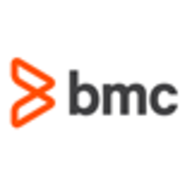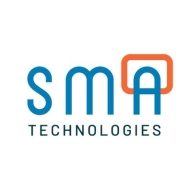


Control-M and OpCon compete in the workflow automation and job scheduling category. Control-M tends to have an upper hand due to its extensive features and integration capabilities, while OpCon is valued for its specific environment automation and cost-effectiveness in specific sectors.
Features: Control-M offers comprehensive integration across platforms and applications, complex scheduling, and automated file transfers, along with a unified view of workflows, automatic error handling, and high availability features like BIM and self-service capabilities. OpCon specializes in automation, especially within the credit and banking sectors, enabling non-IT users to initiate processes with ease through workflow designers and strong ties to systems like Corelation KeyStone.
Room for Improvement: Control-M could improve by enhancing reporting, integrating AI for job management, simplifying its interface for beginners, and providing better support for cloud services. OpCon users express a need for enhanced training, better Active Directory integration, an expanded community platform, and improvements in Solution Manager for complete functionality and visualization.
Ease of Deployment and Customer Service: Control-M provides adaptable deployment options for on-premises, hybrid, and cloud environments. Its technical support is praised for responsiveness, though web interface transitions need improvement. OpCon, primarily deployed on-premises, offers very responsive technical support, though there is a learning curve for new staff. Control-M's support is highly knowledgeable, whereas OpCon benefits from more accessible learning resources.
Pricing and ROI: Control-M's high cost is often justified by its robust features, driving efficiencies and centralizing workloads for long-term savings, despite prohibitive pricing for smaller organizations. OpCon offers straightforward annual pricing with possible inclusion of self-service modules, appealing to smaller organizations wanting to automate workflows without expanding staff. Both products deliver considerable ROI by reducing manual labor and enhancing process efficiency.
| Product | Market Share (%) |
|---|---|
| Control-M | 14.4% |
| JAMS | 2.8% |
| OpCon | 1.8% |
| Other | 81.0% |

| Company Size | Count |
|---|---|
| Small Business | 11 |
| Midsize Enterprise | 8 |
| Large Enterprise | 18 |
| Company Size | Count |
|---|---|
| Small Business | 37 |
| Midsize Enterprise | 23 |
| Large Enterprise | 143 |
| Company Size | Count |
|---|---|
| Small Business | 16 |
| Midsize Enterprise | 29 |
| Large Enterprise | 19 |
JAMS is an automation and job scheduling solution designed for workflow optimization, catering to businesses large and small with flexible licensing and integration options.
Offering both Core and Advanced packages, JAMS supports a range of environments from small teams to large-scale operations. Its standout features include integration with platforms like PowerShell, SQL, and SAP, coupled with capabilities such as dependency management and natural language scheduling. JAMS simplifies job management, centralizes workflows, and boosts productivity with its robust automation features. Customizable workflows and insightful logging make it adaptable for diverse needs, supported by responsive customer service ensuring seamless operations.
What are JAMS's key features?In industries, JAMS is employed for automating workflows and managing batch jobs. Organizations utilize it for SSIS, SQL Server tasks, file transfers, and integrating with vendor systems, achieving efficient file automation and data management. Scheduler enables precise execution of thousands of tasks daily, enhancing operational efficiency.
Control-M SaaS by BMC is tailored for growing teams, offering essential orchestration for managing hybrid cloud workflows starting at $29,000 annually.
Control-M integrates automation, orchestration, and a user-friendly interface to streamline workflows across banking, DevOps, and cloud environments. Key modules like Managed File Transfer and cross-platform support simplify job monitoring, while Batch Impact Manager enhances scheduling. Despite its capabilities, improvements in output analysis, reporting customization, offline access, and API integration are desired by users.
What are Control-M's key features?Control-M is implemented in industries such as finance and enterprise operations, aiding in automating batch processing across platforms like SAP and Teradata. It integrates with secure file transfers, ERP systems, and databases, whether deployed on-premises or cloud, ensuring seamless operation optimization.
OpCon enhances automation with features like auto-scheduling and Corelation KeyStone integration, empowering users with self-service capabilities. Its intuitive interface and flexibility boost productivity, providing reliable automation and efficient file transfers.
OpCon is a powerful automation platform known for streamlining operations through features like auto-scheduling and robust integration capabilities. It facilitates seamless automation, allowing users to execute tasks without direct environment access and simplifies job dependencies. Users benefit from self-service capabilities, which enable easy task execution by non-IT staff, reducing errors and human intervention. With its modern interface, OpCon supports efficient file transfers and integrates effectively with multiple systems, enhancing productivity. While offering significant scalability, OpCon users suggest improvements in web functionality, script-writing, and graphical displays, along with enhancements in user authorization and notification systems. There is also a need for better template management, clearer logging, improved mobile accessibility, and expanded training resources.
What are OpCon's Key Features?OpCon is widely used in industries like financial services, where automation and scheduling tasks are critical. Financial institutions rely on OpCon for core processing tasks, including reporting, automated workflows, and vendor file exchanges. The platform handles high volumes of jobs across platforms, ensuring efficient operations and reducing reliance on manual processes.
We monitor all Workload Automation reviews to prevent fraudulent reviews and keep review quality high. We do not post reviews by company employees or direct competitors. We validate each review for authenticity via cross-reference with LinkedIn, and personal follow-up with the reviewer when necessary.